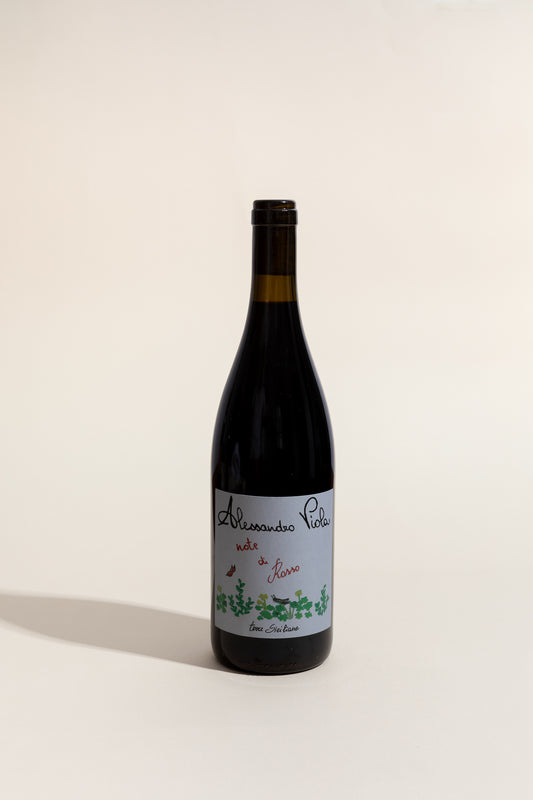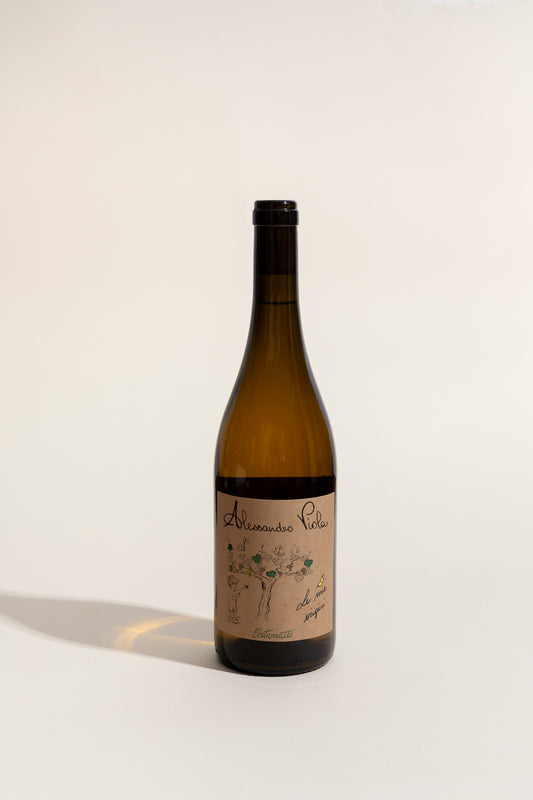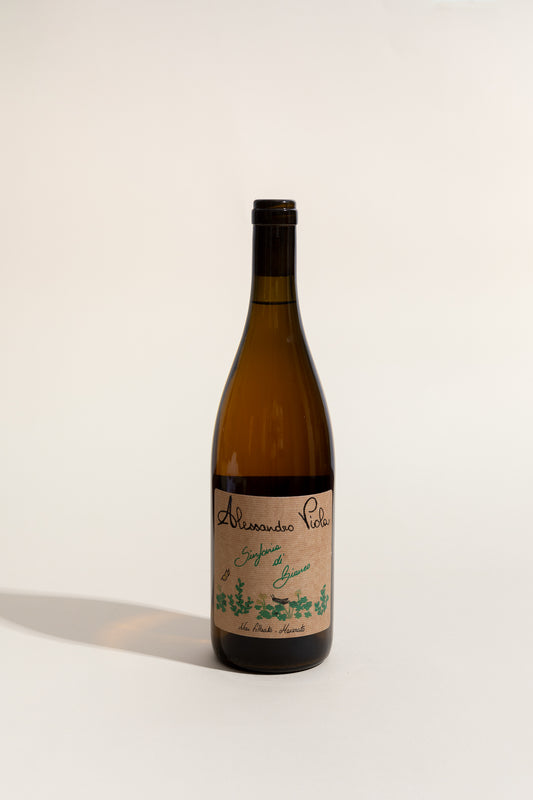Collection: Alessandro Viola
Alcamo
Sicily, Italy
Alessandro Viola's interest in winemaking came from watching his father, a grower, produce small amounts of wine for their household. After some self-guided experiential learning, he decided to study oenology and viticulture at university, where he veered away from the prevailing industrial winemaking techniques. From these two different experiences came the belief that in order to make great wine, nothing needs to be added or taken away if the grapes, soil, and vinification all work in harmony.
After stints making wine with others in northern Italy and near Etna, Alessandro returned to his corner of Sicily to, as he puts it, “build wine using only grapes!” Today, he cultivates five certified organic hectares on Mount Bonifato near Alcamo, a 20 minute drive from the Gulf of Castellammare near the northwestern tip of Sicily, and seven more hectares down a nearby inland valley at a lower altitude. Grapes for his acclaimed Note di Bianco white wine originate in the vineyard near contrada Pietrarinosa, where sea-kissed vines grow in clay soils 200 meters above sea level.
All vines are dry farmed, thanks to the abundance of underground water, and all grapes are hand harvested. Reverence for nature is also apparent in Alessandro’s farming practices; he plows around the vines by hand once or twice a season and plants winter cover crops to nurture and replenish the soil. Nature also leads in the cellar, where the lowest possible amount of intervention is undertaken, including bottling his wines unfiltered and avoiding sulphur, with the exception of occasional small doses only at bottling.
Alessandro is strictly committed to growing and championing local Sicilian varieties and the result is a stunning expression of the western side of the island’s terroir. In his hands, Catarratto, Grillo, Nero D’Avola and Nerello Mascalesse reach their full potential time and time again. You cannot help but love Alessandro’s wines as much as he loves the land they’re grown on and the grapes that made them.
-
 Sold out
Sold outNote di Rosso 2023, Alessandro Viola
Regular price €24,00 EURRegular priceUnit price / per -
Le Mie Origini 2022, Alessandro Viola
Regular price €39,00 EURRegular priceUnit price / per -
Sinfonia di Bianco 2022, Alessandro Viola
Regular price €35,00 EURRegular priceUnit price / per



